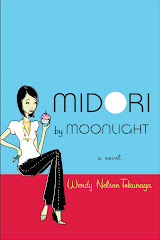
LookAtVietnam.com reports a flurry of activity with some of the country’s top pop singers making records for other Asian markets. My Linh (in photo) has released three CDs in Japan on the country’s Pony Canyon label and a fourth one is in the works. Minh Thu is cracking the Thai market and My Tam is collaborating with a label in South Korea. All these singers sing in Vietnamese—Japanese, Thai, and South Korean fans don’t seem to mind the language barrier.
In fact, this lack of a language barrier probably has something to do with the huge Canto-Pop, Mandarin-Pop and K-Pop industries that learned their stuff from the successful Japanese J-Pop phenomenon, which has been around since the 1970s. I remember trying to save money by buying the Hong Kong pressings of Akina Nakamori or Seiko Matsuda’s CDs, which were cheaper than the Japanese. Akina and Seiko sang in Japanese, but the song lyrics were translated into Chinese in the CD booklet. Some also had the Japanese written in hiragana (the simple phonetic writing) so those who wanted to learn it could follow along in Japanese.
Perhaps Asia has been open to singers singing foreign languages because they have had to endure English pushed down their throats ever since records were invented. But here in the States, it seems that listeners have little tolerance for music sung in “foreign” languages. Except for the occasional novelty song, English seems to rule in the music world here. And Japanese singers who are trying to make it in the U.S. like Boa (who sings in her native Korean as well) and Utada aren’t allowed to sing in their native languages.




What an interesting post. That's such a keen cultural observation that I never really thought about.
ReplyDeleteWhat's also amazing is that some huge Asian stars sing in the language of the country they are popular in, like BoA, she sings in Japanese too. But she is quite the Britney Spears of Asia and she sells everywhere.
Some Hong Kong singers have to learn how to tone down their Cantonese accents and mug Mandarin pronunications for their songs to be sold in Taiwan, Singapore, and China.
"And Japanese singers who are trying to make it in the U.S. like Boa (who sings in her native Korean as well) and Utada aren’t allowed to sing in their native languages."
ReplyDeleteI don't know if that is an entirely correct statement for Utada. Isn't Utada Japanese American? The real tragedy is that people like BoA or Utada have fans in America, but they are either mostly either Asiaphiles or people of the Asian diaspora. That hardly counts for having crossover appeal. Or, as you pointed out, if the song had novelty appeal (perhaps used as a theme to a movie, often a movie that reinforces the foreignness of the culture in question: think "Slumdog Millionaire" and "Jai Ho")
I believe Jackie Chan said, in an interview, that he thinks it's deplorable that the East is so eager to take in Western pop culture, but the West doesn't return the favor.
Your observation certainly reflects my experience though. Language barriers don't bother me. I listen to English, Chinese, Japanese, and Thai music.